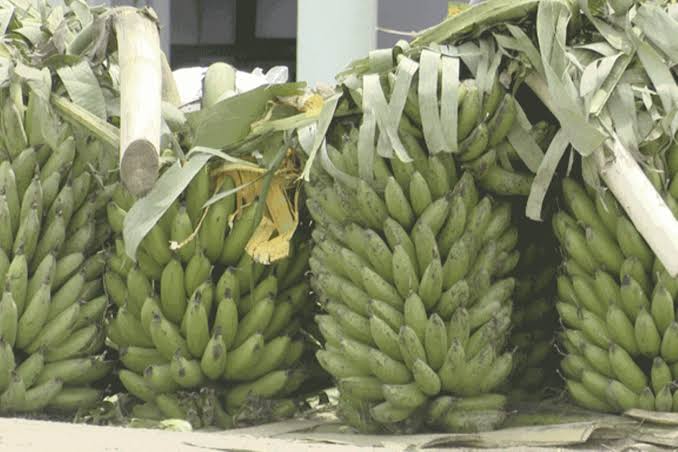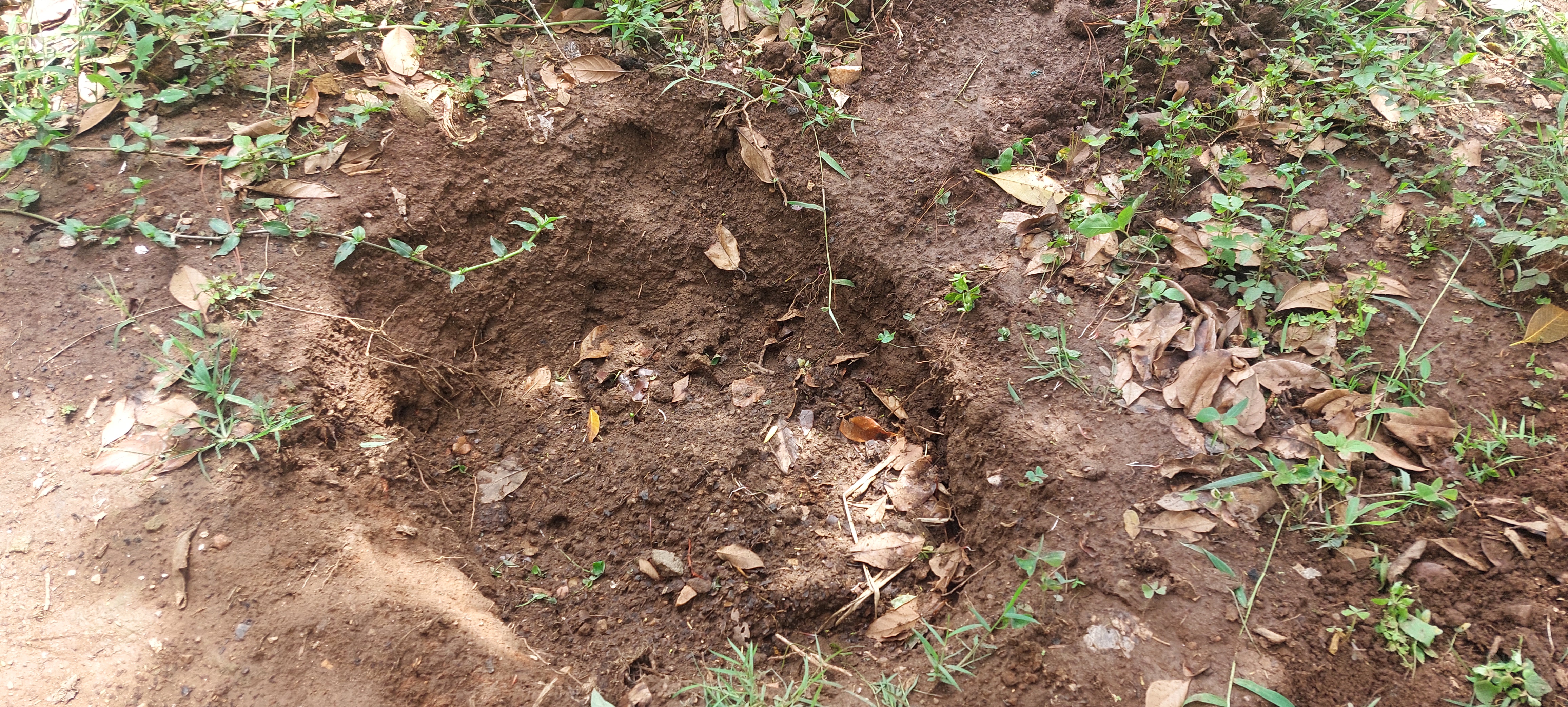Here's a step-by-step guide from seedlings to harvesting in Uganda. :
Growing bananas in Mukono, Uganda! Here's a step-by-step guide from seedlings to harvesting:

(Source)[https://images.app.goo.gl/LP8E8JJ3HS1LD45R6]

Climate and Soil Requirements:
- Mukono's tropical climate is ideal for banana cultivation.
- Well-draining, fertile soil with pH 5.5-6.5.
Step 1: Seedling Preparation (Week 1-4)
- Obtain disease-free banana suckers from reputable sources (e.g., NARO, Uganda).
- Plant suckers in nursery beds or polythene bags filled with a mixture of soil, compost, and manure.
- Water regularly, maintaining consistent moisture.
- Provide partial shade for suckers.
Step 2: Planting (Week 5-6)
- Prepare planting sites with 1-2 feet deep holes.
- Add compost or manure to improve soil fertility.
- Plant suckers 1-2 feet apart, in rows 6-8 feet apart.
- Water thoroughly after planting.

Step 3: Field Management (Week 7-20)
- Mulch around plants to retain moisture and suppress weeds.
- Water regularly, especially during dry seasons.
- Fertilize with compost or organic fertilizers (e.g., 10-10-10 NPK).
- Monitor for pests (e.g., weevils, nematodes) and diseases (e.g., Panama disease).
Step 4: Pruning and Training (Week 10-20)
- Remove suckers to promote healthy growth.
- Trim leaves to maintain plant height and encourage fruiting.
- Support plants with stakes or props.
Step 5: Fruiting and Flower Management (Week 20-30)
- Remove male flowers to direct energy towards fruit production.
- Cover fruit bunches with banana leaves or bags to protect from pests.
- Monitor fruit growth and development.
Step 6: Harvesting (Week 30-40)
- Bananas are ready for harvest when:
- Skin turns yellow or green-yellow.
- Fingers are slightly soft to the touch.
- Bunches are fully formed.
- Cut fruit bunches, leaving a small stem attached.
- Handle fruit carefully to avoid bruising.
Varieties Suitable for Mukono:
- 'Cavendish'
- 'Gross Michel'
- 'Lady Finger'
- 'Nakasabira' (local variety)
Common Challenges:
- Pests: weevils, nematodes, and banana aphids.
- Diseases: Panama disease, black Sigatoka, and yellow Sigatoka.
- Weather: drought, flooding, and extreme temperatures.
Local Resources:
- National Agricultural Research Organisation (NARO) - Uganda.
- Uganda Ministry of Agriculture, Animal Industry and Fisheries.
- Local nurseries and extension services.
Potential Yield:
- 10-20 kg per plant per year.
0
0
0.000
@tipu curate
Upvoted 👌 (Mana: 46/66) Liquid rewards.